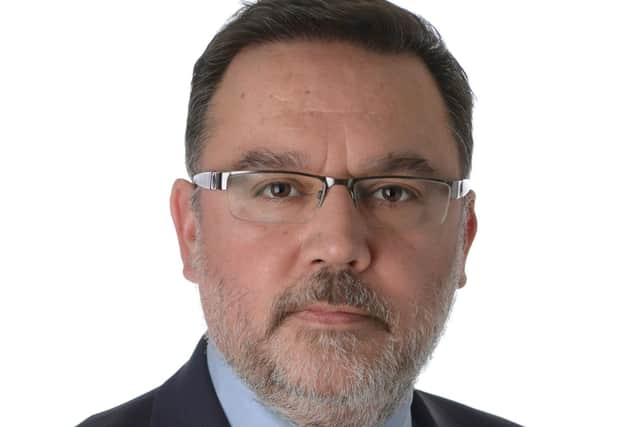NATO could seek compromise on Trident as part of terms of admittance for independent Scotland - Stephen Phillips
The Russian leader has however badly miscalculated the response to his actions. Not only have they made Ukraine’s post-war membership more likely, but we now have Sweden and Finland queueing up to join after rejecting NATO membership for several decades.
After more than 70 years of peaceful co-existence as Russia’s western neighbours, the Finnish Parliament voted overwhelmingly to join the alliance, ending its neutrality. If accepted – and most NATO members have expressed their approval – Finland’s 800-mile border will become NATO’s longest boundary with Russia, more than doubling the length of the European front line.
Advertisement
Hide AdAdvertisement
Hide AdAs the Russian invasion continues and Swedish and Finnish accession into the alliance progresses, the issue of NATO membership and its value remain firmly in the spotlight. It also increases the focus on Scotland’s future position within the organisation in the event of Scottish independence.


Scottish membership of NATO was a pledge made by Alex Salmond at the 2014 independence referendum. During that campaign, there were differing views of how NATO members would react to a Scottish application to re-join the organisation. Dame Mariot Leslie, a former UK Permanent Representative to NATO who publicly revealed she supported Scottish independence, claimed the international alliance would welcome an independent Scottish state although a few commentators disagreed.
Last month Nicola Sturgeon reaffirmed the SNP position that an independent Scotland would be committed to re-joining NATO. This puts her party at odds with its Scottish Government coalition partners, the Greens, who oppose re-joining the organisation should Scotland’s voters opt for independence. This policy meanwhile finds the Scottish Green positioned in sharp contrast to its pro-NATO Green Party colleagues in Germany. The Scottish Greens also appear to be at odds with the wider Scottish public on this issue with polls showing a majority support membership of NATO.
Regardless of these political intricacies on the issue, should Indyref2 come to fruition in the short to medium term it seems certain that the SNP will maintain its support for reapplying for NATO membership in the event of Scottish independence. As we heard in the 2014 campaign, the SNP leadership is likely to argue that fellow member states would benefit from having Scotland within the alliance.
NATO’s declared willingness to attract new members in the aftermath of Russian aggression including Ireland, which has been told it would be welcome to join, would appear to give some substance to such claims. Scotland is also strategically important for NATO as it forms part of the Greenland-Iceland-UK Gap that is essential for countering Russian nuclear submarine activity.
However, here lies another problem, the SNP and the Green Party opposition to the siting of Trident in Scotland, which could prove a major stumbling block in future negotiations.
While NATO operates with a nuclear umbrella, it does not mean that all its members need to agree to base nuclear weapons on their soil. Indeed, Finland has made clear that it would not host nuclear weapons as part of its membership within the alliance.
But the position for Scotland may be more complicated. Trident is currently sited in a strategically important location in terms of global security and it would inevitably cause major disruption if it had to be moved elsewhere.
Advertisement
Hide AdAdvertisement
Hide AdAny decisions on nuclear weapons would, of course, be a matter for an independent Scottish Parliament, where the political dynamic and the public view would determine the course of events. It’s interesting to note that current polling shows a majority of Scots do not support the immediate removal of Trident.
Should Scotland vote for independence, the issues of NATO membership and Trident are likely to be inextricably linked. While keen to expand membership, it is likely that NATO would seek some form of compromise over Trident as part of the terms in admitting an independent Scotland into the alliance.
Stephen Phillips is a partner and member of the Independence Advisory Group at law firm CMS
For a Scottish perspective on news, sport, business, lifestyle, food and drink and more from Scotland's national newspaper, go to www.scotsman.com
To subscribe go to www.scotsman.com/subscriptions